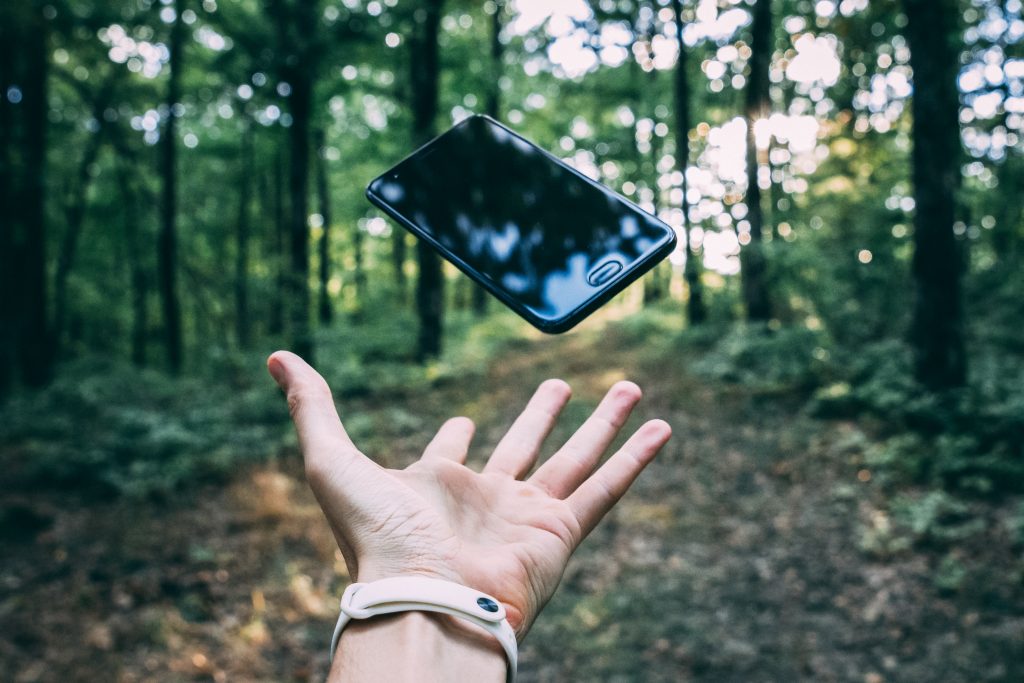
by Olivia Martin
olivia.martin@theleaven.org
When we were growing up, everyone sacrificed sweets during Lent. As we age, abstaining from sweets is still pretty standard, but fasting from social media or screen time increasingly is becoming a Lenten norm.
People are noticing that, like sugar, social media is best when taken in small, regulated doses.
And, like sugar, it can be addicting.
Slow to fast
I think I was a freshman in college the first time I did a Lenten social media fast, giving up Facebook. At that point I wasn’t doing it because I felt I spent too much time on the platform or because I noticed it was detracting from my daily life.
I did it because it seemed challenging enough to constitute the bona fide 21stcentury version of a hair-shirt-wearing, bread and water only, go get ‘em Lenten sacrifice.
And I still had my Instagram in case cutting Facebook was too hard.
That Lent I discovered I had more free time without the demands of my Facebook. I enjoyed that, and repeated the fast in Lents to come.
But as time went on, my phone became more indispensable to me — from Google Maps to Ubering home late at night to calling friends abroad with WhatsApp to accepting event invites on Facebook to posting a funny Instagram story.
And it has started to interfere with my life instead of connect it to others.
As someone who doesn’t like waste, especially wasted time, it seems I’ve been doing a lot of it.
Somehow, I’m consistently able to convince myself that looking at my phone actually helps me avoid wasted time.
I rationalize that it’s better to be updated by emails or social media than it is to stare at zig-zagging waiting room wallpaper or watch commercials for prescription drugs on TV.
Despite this, I’d still say that I use my phone less than the average Millennial, and I try to put some roadblocks in place to curb my usage.
I always keep it on silent so it doesn’t interrupt me. I wear a watch so I don’t have to check it for the time.
But according to my phone’s usage statistics, I still check it an average of 81 times per day.
And that’s just downright interference.
Attention span of a goldfish
Another way I noticed my phone’s (and particularly social media’s) interference with my life was when I began working at The Leaven.
I was hired over a year ago and found it was significantly more difficult to focus for long periods of time than it was in college.
And though I try to fight my phone-induced short attention span, it hasn’t improved as much as I’d like.
Instead of staring at my computer screen as I wait for someone to email me back, I still find myself checking my Instagram.
As I begin transcribing or typing an article, I think of a text message I forgot to respond to or an ailment I want to research or another article I was supposed to proofread an hour before.
I’ve been an avid reader all my life, but even that has become a chore.
I could hardly maintain concentration to manage 10 pages in one sitting. I used to do 100.
Whenever I’m unentertained, I check it. Curious about the cost of flights to Puerto Rico or Bali, I check it. Expecting a response to a text, I check it.
Don’t even get me started on how impossible praying the rosary or adoration has become.
I realized I needed help — I needed structure.
As a first step, I deactivated my Facebook account in June. I haven’t missed it.
And, progressively, I’ve heard of more and more people doing so, too.
Though I over-use my phone, I’ve never been addicted to it.
But I use it as a social or emotional crutch all the time.
Phones make great crutches?
I remember first becoming aware of this in 2017 when I was living in Spain.
Each time I felt lonely, inadequate or embarrassed I immediately would open my Instagram and start scrolling.
Like magic, within two minutes I was adequately distracted from confronting my uncomfortable emotions or circumstances and had quelled the feeling that I was about to cry.
I’ve never been involved in drugs, but I am convinced that how I was using Instagram could be likened to a taking a hit of a joint.
I also make sure my phone holds my hand in social situations, too.
Ever been to a birthday party, meet and greet, family reunion, etc. that didn’t continuously deliver mesmerizing conversation?
I know I have. So does my phone.
Looking around on public transportation, sporting events and graduation parties, I’ve noticed I am not alone in looking to my phone for comfort and entertainment.
I noticed everyone else seemed to be looking at his or her phone instead of at one another.
Others, awareness as gifts
But for me one thing consistently feeds my healthy dissatisfaction with the social and emotional safety net my phone seems to provide: other people.
For me, it always takes being with others who are physically present, who care about me, to help me see that reality isn’t something I needed to run from or go to my phone to find.
Reality, in fact, is right in front of me and a complete gift from God, which means I have to do the work of facing my circumstances with a desire to know what purpose they serve in my life — even if they are uncomfortable or boring.
Awareness of my phone over-usage challenges me to verify if the other is truly a good for me.
It asks me to risk my comfort for the sake of being interested in something or someone outside of myself; it has allowed me to see that even my sporadic awareness of my phone troubles is a gift.
In the end, this is all to say that this Lent I will test my hypothesis further and throw my phone into a lake.
Just kidding.
But I might start with picking it up only 80 times a day.
And, of course, I’ll be giving up sweets.






